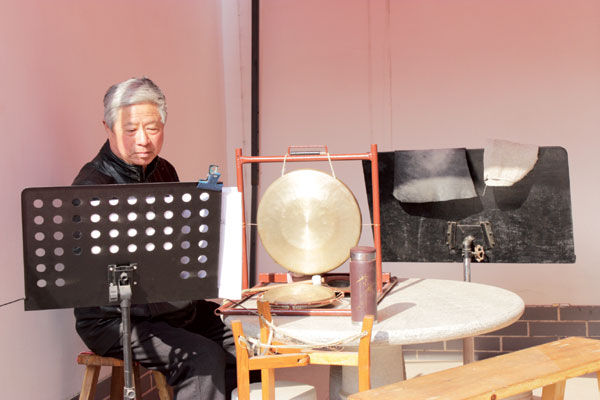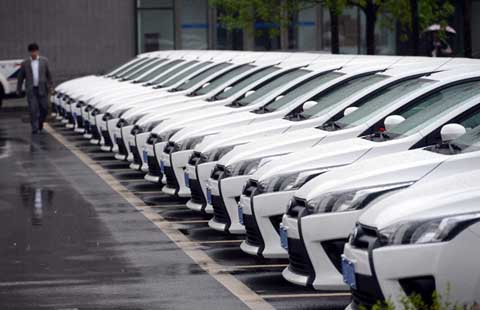Playing a different tune
By Zheng Jinran (China Daily) Updated: 2014-05-19 09:18
 |
|
A customer plays on a drum set. |
Unlike the huge costs involved in shipping finished products, the transportation costs for raw materials is relatively lower, Sun says. "Besides, when the zone is complete, I expect to team up with more companies to cut the raw material shipment costs."
Like Sun, many other companies have also set their sights on being part of the industrial cluster that is slowly taking shape in Wuqiang.
|
 |

|
The county's proximity to the Huanghua and Tianjin ports also makes it an attractive location for companies reliant on exports. Huanghua port, a major port in Hebei province, is 140 kilometers from Wuqiang, while Tianjin is about 220 km.
Dry weather is another factor that makes Wuqiang a better destination than the humid areas in eastern and southern provinces such as Guangzhou for companies, Que says.
"Musical instruments, like guitars, are susceptible to moisture during the manufacturing and shipping process. Dampness would lead to physical distortions and loss of market value," he says.
Preferential policies like rent exemptions have also helped manufacturers like Que. "The rent I paid in Zhejiang province was about 1.2 million yuan every year. It is much lower here."
With several upstream firms like Sun's panel-making factory zeroing in on the new economic zone, it is also proving to be big business for e-commerce companies.
Liu Guang and his partners have been running an e-commerce website that sells musical instruments from a warehouse in Wuqiang since 2011. According to Liu, adequate stocks and the ability to offer lower prices have kept his business ticking. "Our sales have grown from 1 million yuan in 2011 to 6 million yuan last year," he says.
- Playing a different tune
- Creative juices flow with the Thames in London
- Concerns grow as real estate cool-down continues
- China says faster economic reforms needed
- Child models highlight Taiyuan Intl Auto Show
- China goes local to soften hit from property downturn
- Capitalizing on the sweeping new zeitgeist
- Top 10 careers for new graduates















